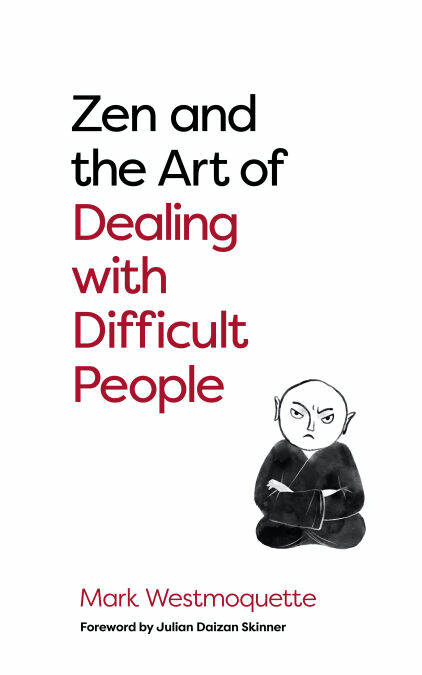
- Afhalen na 1 uur in een winkel met voorraad
- Gratis thuislevering in België vanaf € 30
- Ruim aanbod met 7 miljoen producten
- Afhalen na 1 uur in een winkel met voorraad
- Gratis thuislevering in België vanaf € 30
- Ruim aanbod met 7 miljoen producten
Zoeken
€ 9,85
+ 9 punten
Uitvoering
Omschrijving
Discover how you can use Zen Buddhist practices and mindfulness tools to cope with the difficult people—or ‘troublesome Buddhas’—in your life.
Perhaps you can see there’s a pattern to your behavior in relation to the challenging people in your life—and that it often causes pain. Here, Zen monk Mark Westmoquette argues how the only way we can grow is by facing this pain, acknowledging how we feel and how we’ve reacted, and making an intention or commitment to end this repeating pattern of suffering. Often times these difficult people—or “troublesome Buddhas”—can prove useful teachers.
Westmoquette speaks from a place of profound personal experience. He endured two life-changing traumas caused by other people: his sexual abuse by his own father; and his stepfather’s death and mother’s serious injury in a car crash due to the careless driving of an off-duty policeman. He stresses that by bringing awareness and kindness to these relationships, our initial stance of “I can’t stand this person, they need to change” will naturally shift into something much broader and more inclusive. The book makes playful use of Zen koan—apparently nonsensical phrases or stories—to help jar us out of habitual ways of perceiving the world and nudge us toward a new perspective of wisdom and compassion.
Perhaps you can see there’s a pattern to your behavior in relation to the challenging people in your life—and that it often causes pain. Here, Zen monk Mark Westmoquette argues how the only way we can grow is by facing this pain, acknowledging how we feel and how we’ve reacted, and making an intention or commitment to end this repeating pattern of suffering. Often times these difficult people—or “troublesome Buddhas”—can prove useful teachers.
Westmoquette speaks from a place of profound personal experience. He endured two life-changing traumas caused by other people: his sexual abuse by his own father; and his stepfather’s death and mother’s serious injury in a car crash due to the careless driving of an off-duty policeman. He stresses that by bringing awareness and kindness to these relationships, our initial stance of “I can’t stand this person, they need to change” will naturally shift into something much broader and more inclusive. The book makes playful use of Zen koan—apparently nonsensical phrases or stories—to help jar us out of habitual ways of perceiving the world and nudge us toward a new perspective of wisdom and compassion.
Specificaties
Betrokkenen
- Auteur(s):
- Uitgeverij:
Inhoud
- Aantal bladzijden:
- 224
- Taal:
- Engels
Eigenschappen
- Productcode (EAN):
- 9781786786104
- Verschijningsdatum:
- 13/12/2021
- Uitvoering:
- E-book
- Beveiligd met:
- Adobe DRM
- Formaat:
- ePub

Alleen bij Standaard Boekhandel
+ 9 punten op je klantenkaart van Standaard Boekhandel
Beoordelingen
We publiceren alleen reviews die voldoen aan de voorwaarden voor reviews. Bekijk onze voorwaarden voor reviews.







